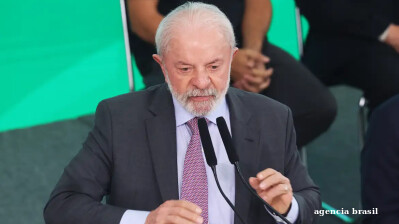The Lithuanian government decided on September 29 to make face masks mandatory indoors again starting from October 1 and recommended that both public and private legal entities switch back to working remotely to counter a rapid upswing in new COVID-19 cases.
Lithuania is the first Central European country to resort to tightening the public health rules as infections rise amid the fourth wave of the pandemic. Poland, Hungary and Slovakia are so far holding back from tightening the rules despite the rise in infections. Numbers in the Czech Republic are rising but are still relatively low.
The latest official statistics showed on September 29 that Lithuania's daily infection count had hit 1,847 cases and 14 people had died in the past 24 hours, a 16-fold increase in new cases from a year ago. Lithuania has reported 329,868 COVID-19 cases since the outbreak of the virus in the spring of 2020. In all, 4 965 Lithuanian nationals have died of the virus.
Interim director of Lithuania’s National Public Health Center Giedre Aleksiene said that the hike is due to the highly infectious nature of the delta variant, colder weather, which spreads respiratory viruses, and the more relaxed mood of Lithuanians, of whom nearly 70% are now vaccinated. “Half of the patients do not have an idea where and how they could get infected with the coronavirus,” she said.
The liberal-conservative Lithuanian government argues that enforcing everyone’s social responsibility in public places by making everyone again wear facemasks indoors will help stem the rise. As of October 1, everyone will be required to have a face covering in closed public settings, such as in shops or during events, even if they are only open to those with a vaccination certificate.
The requirement will not apply to people who cannot wear a mask for medical reasons, where a service cannot be provided to a customer wearing a mask, and while eating and drinking in bars, cafes or restaurants.
Prime Minister Ingrida Simonyte confirmed later that face coverings will also be compulsory at work "when people work in close contact in closed spaces". She added that the government "strongly" recommends that people work remotely where possible.
At schools, facemasks remain mandatory for all students except primary classes, according to the prime minister.
Currently, 67.7% of the Lithuanian population is immune to COVID-19, either through vaccination or infection, but the number is still insufficient to control the spread of the virus, according to the government.
Some 42.4% of adults in Lithuania would get booster shots against the coronavirus, which is lower than the existing number of people vaccinated with at least one dose, a new survey by Vilmorus, a Lithuanian pollster, says.
Lithuania now has over 72% of residents who have received at least one dose of a coronavirus vaccine. 20.3% said they were undecided on the third vaccine dose. 18.7% said they would not get the booster shot, and 18.5% said they have not been vaccinated at all.
According to Vladas Gaidys, head of Vilmorus, once the share of vaccinated people is taken into account, one can say over a half of the population would get booster shots.
"If we consider those who have been vaccinated as inclined to get the third shot, then we have more than a half – around 52 percent from those who are vaccinated," Gaidys said.
Nevertheless, he paid attention to the fact that this survey shows a tendency as respondents were not asked whether they had been vaccinated but could pick their answer from four options. The share of respondents who said they had not been vaccinated is smaller than the share of non-vaccinated people in the general population.
Professor Aurelija Zvirbliene from Vilnius University's Institute of Biotechnology says uncertainty might be causing public doubt on booster shots as it's not clear right now whether such shots will be recommended for everyone and when.
"When we started vaccinating people, people were mostly told about two doses or one dose in the Johnson & Johnson case, and I can understand that some people might feel as if tricked that they were told one thing, and now they are being told the other," the professor said.
Zvirbliene hopes the percentage of people with favourable views on booster shots will rise once the number of people who have received them increases and they will become a more common and known thing.
"Younger people who might need revaccination, probably later, will see the example of older people and will accept this issue more easily. So I think the result we have now will not necessarily be like that once we start revaccination as sometimes the fear is just caused by a new, untried thing," she said.
News

Switzerland reopens Baghdad embassy after 30-year closure
Switzerland reopened its Baghdad embassy after 30 years, with Iraqi and Swiss foreign ministers officiating ceremony reflecting confidence in Iraq's stability and signalling expanded economic cooperation.

Brazil's Lula announces fourth presidential run at 80
Brazilian President Luiz Inácio Lula da Silva has announced he will seek re-election in October 2026, confirming his candidacy during a state visit to Indonesia on October 23.

Serbian president blames opposition for “terrorist attack” outside parliament
President Vucic blamed opposition groups for what he described as a “terrorist act” outside the National Assembly in Belgrade, after a 70-year-old man opened fire on a camp of government supporters and set fire to one of their tents.

IOC sanctions Indonesia over Israel visa ban
The International Olympic Committee has announced that international sports federations will be advised not to hold competitions or meetings in Indonesia after the country barred Israeli athletes from entering.




